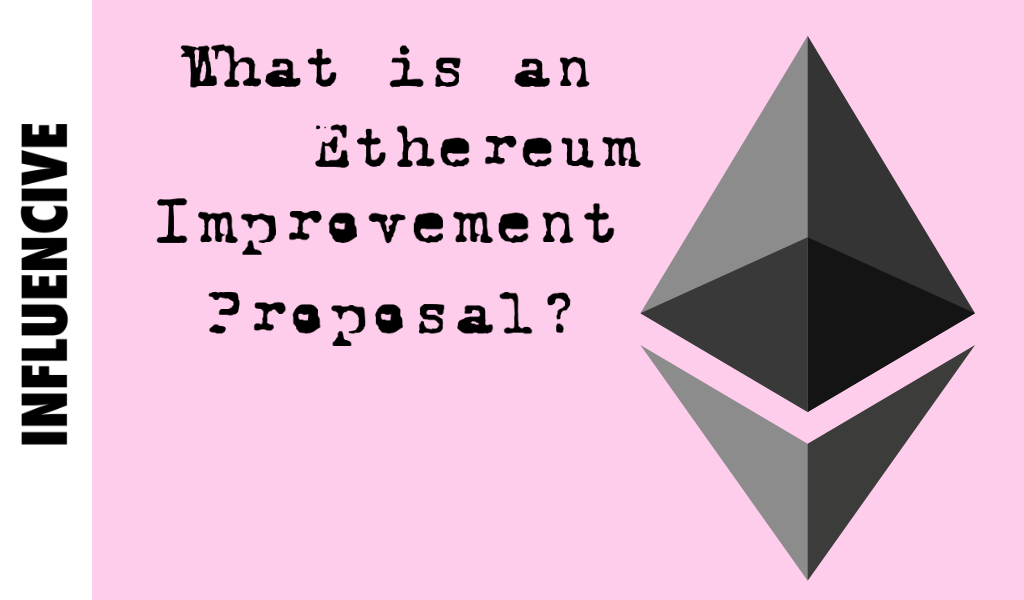Ethereum Improvement Proposals (EIPs) describe standards for the Ethereum platform, including core protocol specifications, client APIs, and contract standards. Network upgrades are discussed separately in the Ethereum Project Management repository.
Potential new features or standards can be introduced by any developers wanting to build on the network using EIPs. They contain the technical specifications needed for the proposed changes. The EIP process is responsible for all Ethereum network upgrades.
Some Proposals that network users encounter regularly:
- EIP-20 token standard – The most well known standard, EIP-20 token standard allows developers to launch their own token on the Ethereum network.
- EIP-721 is an NFT standard that allows transactions to be validated through Ethereum smart contracts.
- EIP-1155 is similar to 721 but it supports batch processing of NFTs, or fungible tokens.
- EIP-137 – Is the Ethereum Domain Name Service that offers decentralized naming for websites, wallets, and more. Three-digit domains like 207.eth have a floor price currently of 17.4ETH on opensea.
One improvement protocol some may recognize is EIP 1559 which was developed to improve the gas fee experience. Vitalik Buterin recently posted on some recent protocol improvements:
EIP-1559, the merge and wallet upgrades have _drastically_ improved the UX of sending ethereum transactions since 2020.
Now I can just send a transaction, not fiddling around at all with wallet settings, and usually see it included within a few seconds.
— vitalik.eth (@VitalikButerin) November 30, 2022
Improvements to Support Web3 Gaming
ERC-721 and ERC-1155 the most commonly used standards in NFT implementations today have not undergone a lot of changes in recent years. Still, the demand for more use cases is rising as projects become more sophisticated. The combination of gaming and NFTs is putting more demands on the system and the need for upgrades is ongoing. Several interesting proposals are developed and submitted on a regular basis. One of note is ERC-3664, presented by drepublic.io.
This proposal is an extension of existing standards that divides NFT attributes into categories represented by smart contracts. The most interesting attribute for gaming is the ‘evolvable’ one. It allows NFTs or in-game assets to change traits specified by the passage of time. This along with the combinable attribute allows NFTs as in-game assets to offer more functionality similar to and even better than traditional Web2 games.
Ethereum developers are not limited by current standards. They can develop and submit improvements as needed. The EIP process makes Ethereum the scalable machine it is and is the reason why the network is able to respond and adapt to changing technology.
Opinions expressed here are opinions of the Author. Influencive does not endorse or review brands mentioned; does not and cannot investigate relationships with brands, products, and people mentioned and is up to the Author to disclose. Accounts and articles may be professional fee-based.

